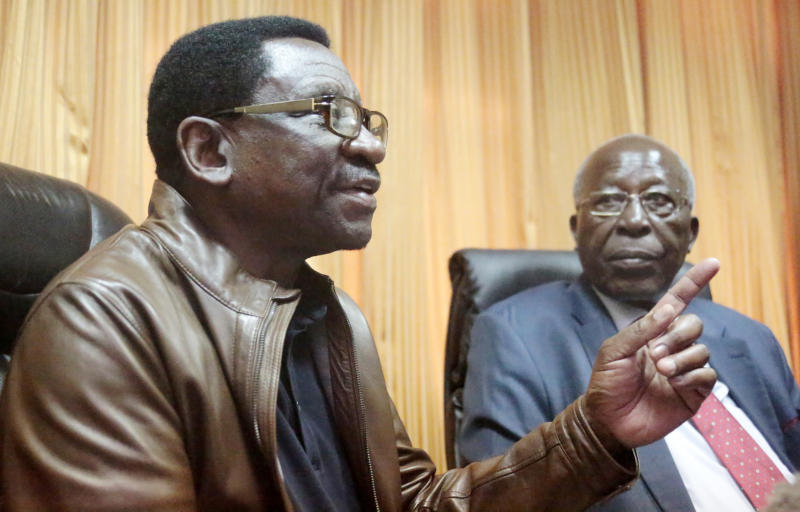×
The Standard e-Paper
Fearless, Trusted News

Senate Minority Leader James Orengo (left) and Kisii Senator Sam Ongeri address the media at Parliament Buildings. (Photo: Boniface Okendo)
The Orange Democratic Movement is pushing for a referendum in the next six months on the back of planned countrywide meetings to consolidate views on the Building Bridges Initiative report.